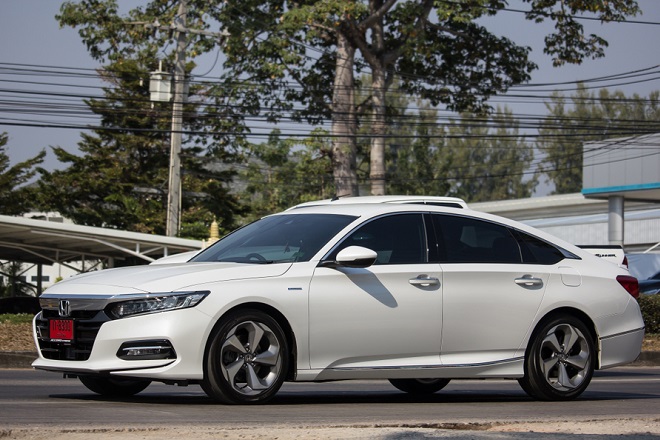On 20 January 2021, President Biden signed the Paris Agreement on behalf of the United States.
This agreement has one mission only. That is to save us all from extinction due to global warming caused by carbon emissions.
Around the world, world leaders are looking for ways to limit global warming to under 2% a year by 2050. At the moment, we’re running at 10% a year.
Since electricity generation contributes around 40% of the carbon emissions responsible for global warming, it makes sense that solar energy’s in the limelight right now.
Let’s consider the environmental benefits of solar energy to see if it really is the answer to our global warming woes.
What Is Renewable Energy?
To understand the importance of solar energy in the world today, you need a clear understanding of the words ‘sustainable’ and ‘renewable’.
According to the Oxford dictionary, ‘sustainable’ means, ‘can continue for a long time.’ ‘Renewable’ means something that’s replaced naturally’.
Here’s why coal and other traditional energy sources fail to meet either of these definitions.
Most of the Earth’s non-sustainable energy sources came about billions of years ago. According to the World Coal Association, the coal and oil reserves we’re tapping into today date back millions of years.
The energy contained in this ancient substance originally comes from the sun. Like plants today, ancient species harvested energy from the sun. This energy remained buried under the Earth, trapped within its fossilized hosts until we discovered it.
How Long Will Our Coal Supplies Last?
According to the WCA, there’s enough coal to keep us going for another 132 years. After that, we’d have to wait a couple of million years for the Earth to produce more.
If you consider the average lifespan of humans, 132 years translates into under 2 generations. That means your great-grandchildren will likely live in a time when these reserves are long gone.
Let that sink in for a while.
If only we had another way to store energy from the sun…
Solar Is Forever
Our sun is a star and like all other stars, it will eventually die. Scientists predict that our sun’s about halfway through its 10-billion-year lifespan. That means it’s still got around 5 billion years to go.
Yet, the sun’s demise won’t have any effect on humans. We’ll be long gone within a billion years.
Until that distant day, the sun keeps pumping out energy around the clock.
It’s the ultimate renewable energy source, pumping out 4 million metric tons per second as it makes its way around the globe. That’s enough energy to satisfy our earthly needs many times over.
Solar panels capture that energy and convert it into a form we can use instead of burning coal for energy.
How Does Sustainable Energy Benefit the Environment?
I think we can agree that solar energy sounds like a much better deal for mankind than any other source of power.
Of course, all these benefits pertain only to our ongoing survival. The planet will continue to thrive happily without us burning coal all day long.
It’s important to remember that using up the Earth’s resources disrupts the fragile balance of the planet. Perhaps in ways we haven’t even discovered yet.
That’s the part that affects our welfare as well as that of Mother Earth.
Solar Combats Global Warming
Even if we manage to implement large-scale sustainable initiatives before we run out of non-sustainable energy reserves, we’re already in trouble.
For starters, all the energy we’re digging up for underground sources was never meant to surface, let alone get set alight. When we burn coal to generate electricity, we’re releasing tons of carbon dioxide into the atmosphere.
Likewise, the heavy machinery used to harvest coal burns gas, a derivative of other non-renewable oil sources, all the while pumping noxious gases into the air.
All living creatures emit carbon dioxide which plants snatch out of the air and convert back to oxygen. Excess carbon dioxide travels to the edge of the Earth’s atmosphere where it acts as an important greenhouse gas.
Greenhouse gases capture thermal energy from the air and send it back to Earth. If they didn’t, we’d all freeze to death.
That’s good news, right?
Yes, except the atmosphere’s not designed to know when enough’s enough. Too much carbon dioxide in the atmosphere means excess thermal energy can’t get past this barrier and disperse into space.
The result is a planet that’s getting hotter and hotter by the day. This global warming has a catastrophic effect on weather systems across the planet.
Unless we can reverse this process, we can look forward to increasingly rainy weather and more violent storms as time goes on. These weather events will eventually disrupt plant life on Earth enough to ensure our extinction long before we run out of coal reserves.
How long do we have to rectify this?
According to the Paris Agreement, we only have 20 years.
Solar energy creates no carbon dioxide emissions at all while they’re in operation. Even the manufacturing process for solar panels creates around 20 times less carbon dioxide than electricity generation does.
Solar Decreases Pollution
Apart from massive amounts of carbon dioxide, electricity generation also introduces a considerable amount of pollutants into the air.
Mining and drilling also create dust and pollution as they go along, as well as carbon emissions from the machinery involved in the process. These harmful toxins reduce the quality of our air, making it hard to breathe for both us and the plant life that sustains us.
Medical experts have identified pollution as a major cause of cancer, allergies, asthma, and many other respiratory ailments. Like thermal energy, these substances back up in the atmosphere, causing widespread damage.
Solar energy doesn’t release any pollutants into the air.
When you switch to solar, you’re improving everybody’s quality of life just a little bit and ensuring that we aren’t all enveloped in a thick layer of pollution forevermore.
Solar Protects Our Water Sources
Water is an essential component of life. There’s no substitute for clean drinking water and nothing on earth can survive without it.
Electrical generators use up vast amounts of this precious resource, thousands of gallons at a time. It’s used to cool generators, refine and process fuel.
Once it’s used in this way, the water’s polluted and not fit for consumption by any living thing.
When combined with the weather disruptions caused by global warming, this excessive use of water to generate electricity spells disaster for us all.
Hydro-electric dams also use water to generate electricity. These enormous stores of water disrupt the natural flow of this precious liquid through the ecosystem, eventually causing disruption and desertification.
Many countries already suffer from serious water shortages and can ill-afford the cost of generating electricity conventionally for much longer.
You don’t need any water to generate electricity with solar panels and solar panel producers use a modest amount of water when manufacturing their products.
Solar Goes Beyond Environmental Benefits
Right now, solar panel companies, are struggling to keep up with the demand for this abundant and economical source of energy. That’s because people are waking up to the realities of global warming fast. Going green is the biggest trend around lately.
They’re also waking up to the many other benefits of solar power. These include:
- Generous state incentives for homeowners who install solar power
- Vastly decreased electricity bills
- Almost no maintenance costs
- A reliable source of energy during power grid outages
- A huge ROI when it comes to selling their homes
By storing the energy generated in batteries, you can keep your home functioning while the sun’s down. You can stay connected to the grid in case of emergencies, like ongoing cloudy weather.
What’s more, you can ‘sell’ any excess solar you generate in your home back to the power companies. In return, they’ll give you a credit on your electricity account.
The Real Cost of Solar vs Conventional Power
Yes installing solar panels, inverters, and batteries is expensive at the outset. However, this pales in comparison to what you would spend on energy bills over the long lifespan of your solar installation.
What’s more as technology advances and the production of solar installations increases, prices are coming down.
Of course, the real cost of solar depends on the value that you place on these environmental benefits that could ensure the survival of our species.
If you’d like to find out more about what you can do to make a difference in the world today, keep browsing our website.




